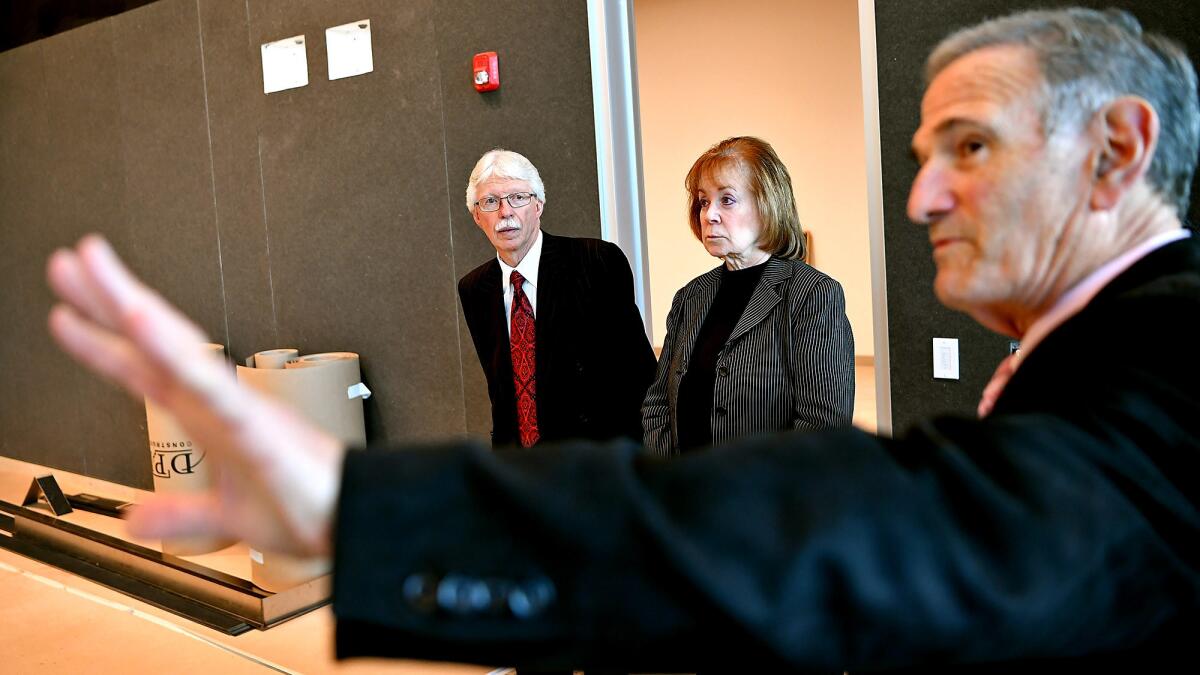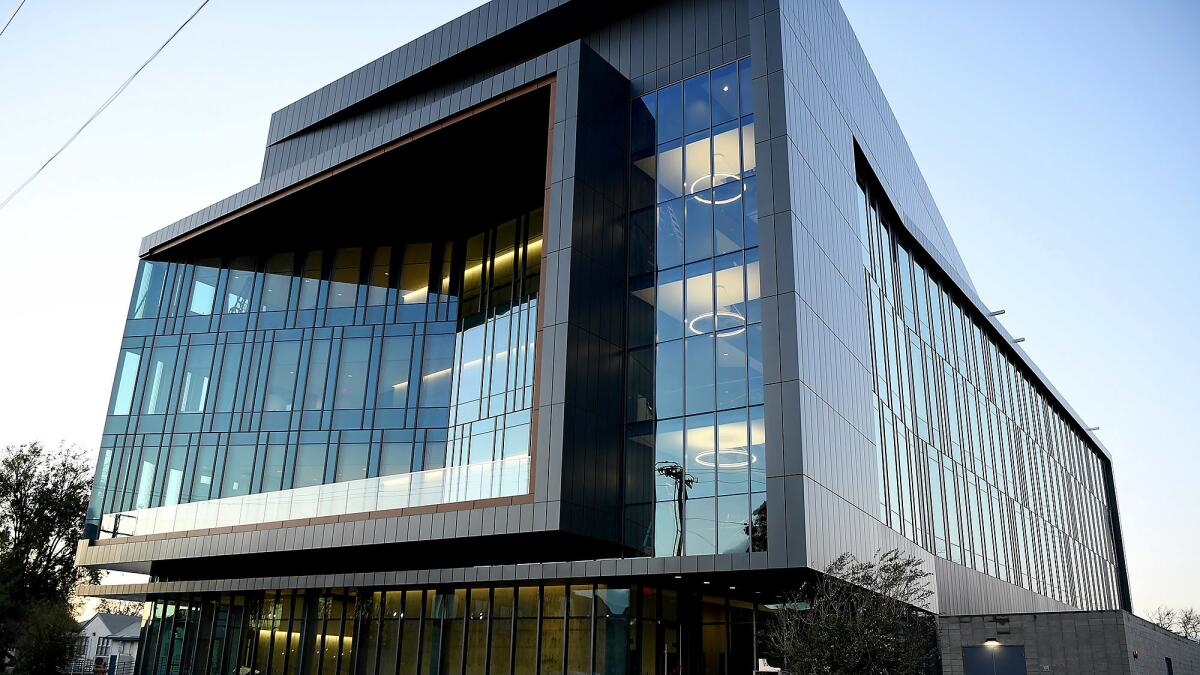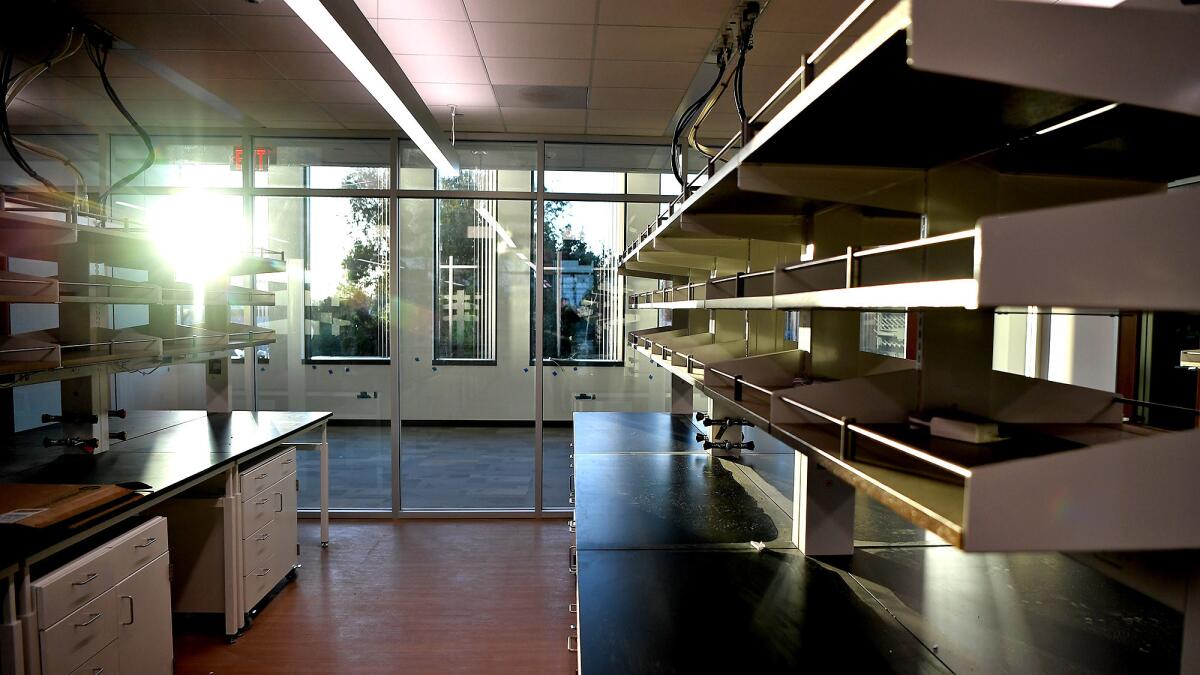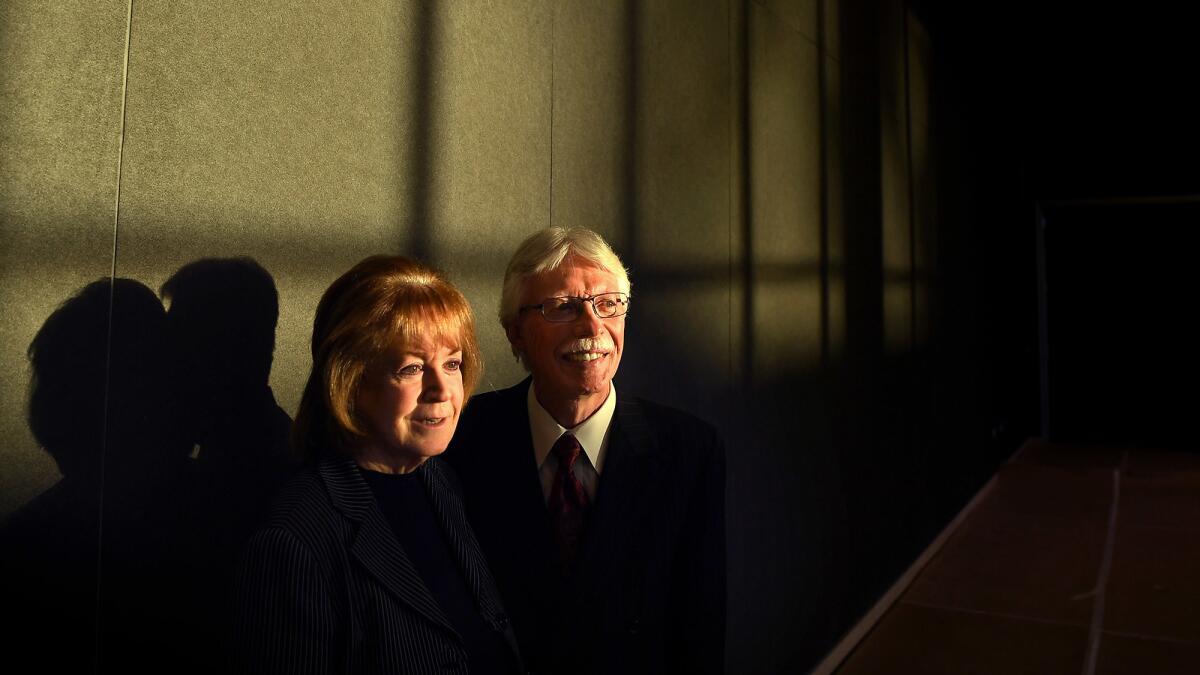South Bay couple donate $70 million to L.A. biomedical institute

- Share via
In the months leading up to their 70th birthdays, Melanie and Richard Lundquist thought about ways to celebrate.
The South Bay couple, who have donated more than $200 million to education, healthcare and other initiatives in Los Angeles County, considered taking a trip. But they’re not much for skiing, and they’re not really the sunbathe-on-the-beach type.
Richard Lundquist was certain, though, they wanted to make it memorable.
“Well, gee, we’re turning 70,” the South Bay developer recalled telling his wife, “what better than to make a $70 million gift to LA BioMed?”
On Saturday night, under the guise of celebrating that milestone, the couple announced the eight-figure donation at a dinner held at the independent research institute on the Harbor-UCLA campus.
The gift is aimed at expanding the county’s biotech industry in general and the scope of the Torrance institute in particular. The Los Angeles Biomedical Research Institute, better known as LA BioMed, has more than 400 researchers and has spun off 13 start-ups over the last dozen years.

The organization’s board on Friday approved renaming the center the Lundquist Institute in recognition of the couple’s philanthropy, including $6.7 million in prior gifts, said Dr. David I. Meyer, chief executive of the institute.
The couple’s latest donation is the fourth-largest medical-related gift in the state since 2015, according to the Chronicle of Philanthropy, and will go toward operation of the institute, including recruiting researchers and attracting start-ups to the institute’s new incubator.
“You have young people coming on the market who are looking for a career in research, and they have a lot of choices,” Meyer said. “We have to be competitive.”

The institute opened in 1952, in buildings left over from when the campus was a U.S. Army hospital during World War II. Today, about a dozen of them are still occupied, though Meyer said they are barely functional.
Despite the dilapidated facilities, over the decades researchers developed the model for paramedic emergency response as well as conducted the first training programs for nurse practitioners.
More recently, in 2017, a researcher at the institute devised a Food and Drug Administration-approved treatment for sickle-cell disease, the first one available for children. Researchers also developed low-cost eyedrops to prevent blindness in children and a screening for Tay-Sachs disease, a genetic disorder that attacks the nervous system.
Among its spinoffs are NovaDigm Therapeutics, which is creating vaccines for fungal and bacterial infections commonly contracted at hospitals, and QT Medical, which makes wireless digital electrocardiograms to screen infants for long QT syndrome, which can be fatal.
The institute, which has a stake in some of the companies started by its researchers, generates revenue through government grants and royalties from scientific discoveries and has an annual budget of about $75 million.
Ahmed Enany, CEO of the Southern California Biomedical Council trade group, said the donation will move the organization in the right direction of creating a hub for biotechs.
“There’s a need for it in that part of the county,” he said.
He estimated there are about 420 bioscience companies in the area, and about nine incubators in the L.A. region are operated by nonprofit organizations.
“The idea then is how to grow it so it can be a significant contributor to companies and job and work creation,” a process that generally takes about five years, he added.

The Lundquists made their fortune through Continental Development Corp., which boasts building more than 5 million square feet of commercial and office space in California.
The couple have donated $100 million to the Torrance Memorial Medical Center, and in 2007, they founded their nonprofit, Partnership with Los Angeles Schools, to which they donated $85 million for the support of schools in the Los Angeles Unified School District.
Richard Lundquist said that when he first toured the LA BioMed campus nearly 10 years ago, he was surprised to know very little of its presence and discoveries.
“I was in awe of the work that had been accomplished but shocked by the facilities,” Richard said. “How could this great work come from these facilities?”
Not long after, the Lundquists began working with Meyer to help plan and construct a $63-million, four-story building, which will open at the end of March and house researchers, administrative offices and an incubator for start-ups.
Saturday night’s dinner was held at the building, to which the couple had made a $3-million donation.
With his development background, Richard Lundquist helped secure architects for the new building and is assisting with the institute’s creation of a bioscience industrial park on a 15-acre expansion that is pending approval from the county.
Already, the institute has eight companies set to move in and can accommodate 20 to 30, Meyer said.
Andrea Armani, a professor of chemical engineering and materials science at USC, said Los Angeles has historically had a problem retaining bioscience innovators. She said she’s had undergraduate students move to San Francisco to start companies rather than stay in L.A.
The institute’s incubator is one way to attract and keep companies by giving them resources and mentoring, she said, which will help build the biotech industry.
“It’s an injection of energy into creating that trained workforce,” she said.
For Melanie Lundquist — president of the couple’s philanthropic foundation and a member of the institute’s board of directors — the stories of researchers’ successes convinced her LA BioMed was worth investing in.
At board meetings, researchers speak about projects they’re working on, she said, making her feel inspired about how the institute can improve lives across the world.
One breakthrough at the institute included an enzyme replacement therapy for a fatal childhood illness — work that started after a Dallas police officer sought help from the institute.
“He was betting his son’s life that LA BioMed could do this,” Melanie said. The boy, Ryan, has graduated from college, surpassing the 10-year life expectancy he was originally given.
“The impact of this investment is really global,” she said.
More to Read
Inside the business of entertainment
The Wide Shot brings you news, analysis and insights on everything from streaming wars to production — and what it all means for the future.
You may occasionally receive promotional content from the Los Angeles Times.











